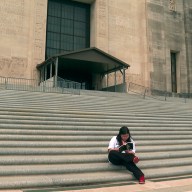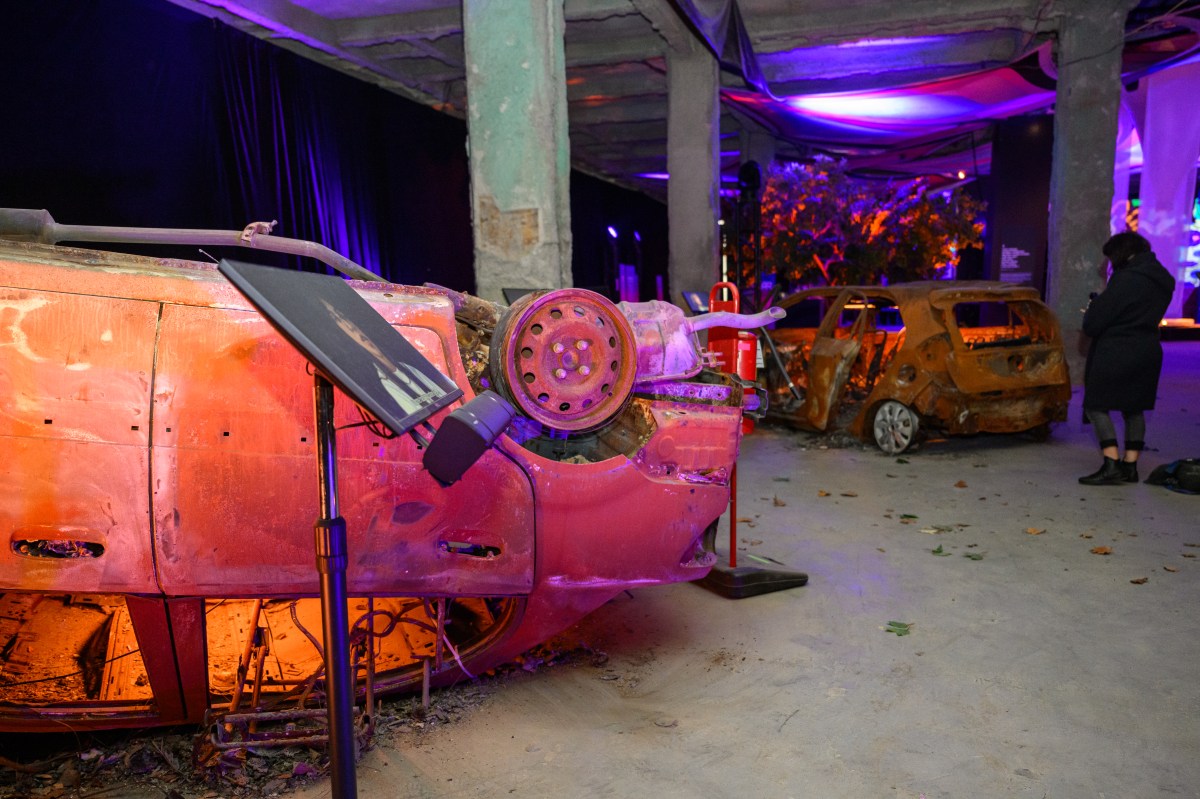
Most people looking to get a band off the ground move to Brooklyn. Keegan DeWitt got the hell out.
The Wild Cub frontman had spent the better part of eight years living in New York, working as a composer for commercials and film soundtracks — and successfully, at that. (“Inocente,” an Oscar-winning short documentary, for which he composed the score, was nominated for anAcademy Award in 2013.) Still, he struggled to make ends meet.
“I spent a lot of my time learning how to bankroll living in New York, which is just such a big waste of effort,” he says. “I feel like I got a lot out my time there, and New York is such a fundamental part of who I am now, and it shaped me as a person a lot, but at some point, I was like, ‘I’m succeeding half way at my artistic career, and I’m only putting 50 percent of my effort into my day job, and not being very good at that. Maybe I should go to Nashville, where I can put 100 percent toward pursuing my art.”
So he did. Brooklyn might be the unofficial indie music capital of the country, but it’s also saturated with fairly interchangeable young bands struggling to establish themselves. That’s one thing that drew DeWitt to Nashville.

“The music business is changing, and that’s one of the places that it’s maybe changing in a good way,” he says. “In Nashville, there’s a strong burden of proof, in terms of having to write songs that have content to them. There are such long lines of songwriters that come from there that really write songs, legit songs. If there’s anything that modern music is missing, at the moment, especially hip indie music, are actual songs. So that’s one cool thing. You’re getting people that are really experimenting with new ways of making music but at the same time understand what it means to tell a narrative using the structure of the song.”
Plus, the cost of living down South is just cheaper. “I kept looking around in Brooklyn going, how in the f— are you guys paying for this?,” he laughs. “Are we all on trust funds, because I know I’m not. How are you doing this? Just hanging out and being in a band?”
These days, just hanging out and being in a band is pretty much DeWitt’s main occupation. In Nashville, he hooked up with multi-instrumentalist Jeremy Bullock to form Wild Cub, a fuzzed-out, synth-pop quintet whose debut album “Youth” dropped earlier this year.
Wild Cub might not yet be a household name, but most people are likely familiar with their single “Thunder Clatter,” an ode to DeWitt’s wife (who he married right around the same time he started writing “Youth”) buoyed by uptempo percussion and balmy beats.

Shifting gears from the solitary job of composing soundtracks to collaborating with bandmates and fronting a buzzy indie band can’t be the easiest transition, but he says it’s been an exciting change of pace.
“The nice thing about composing is that you can use restraint. You can just hit a single note and it can have a huge ripple effect if it paired with the right thing, timing-wise,” he says. “With a band you can also do something else. It’s like, at any moment that’s been really big in your life, there’s never been just one single emotion that comes. It’s not one-dimensional, it’s a multitude of things. You’re happy, but you’re also terrified, but you also feel invincible, but also crippled by the pressure of whether or not you can do something. A band gives you the ability to tackle a lot more nuanced emotions like that. It’s like the adage of what makes a really good pop song — something that sounds celebratory but underneath, it’s melancholy. You can dig at that more complex stuff.”
Still, learning to play well with others hasn’t been an entirely seamless transition. “I think one thing is true that, as the person who has to sing it every night, it’s difficult to connect with things that you haven’t written the entirety of,” he says. “It’s like in a play, you can do a certain amount of preparation as an actor, but things really start to take on a dynamic when you interact with somebody else. That’s where the drama takes place, and I like to think that some of that is true in terms of me having to collaborate with band members.”
That said, DeWitt isn’t interested in stealing the show. “I think in general, every year that I get older, the less I desire to be the main person that everyone is looking at. I try and think of it more as a literal thing, like it’s my job to be just one more piece of what’s happening on stage, in terms of how we’re telling the story to people, and the urgency or drama or physicality that I bring to it is all in service of helping people connect with the songs in a more immediate way.”
At 31, DeWitt has developed a fairly mature perspective on life. But he stresses that “Youth” isn’t about any kind of nostalgia for where he’s been, or what he could have done.
“You look around, and you just start to see all the people around you being shaped by a very simple thing — either them getting exactly what they wanted, or them not getting what the they thought they deserved or wanted in life,” he explains. “I was afraid that, through the refinement of growing up, you learn to either close yourself or open up, and that I was going to miss the one thing that I was desiring in my life, which was to meet someone to pair my life with. That I was going to shut myself off because of all the disappointments of growing up and getting older, and miss the one thing that I actually wanted. But there’s a lot more a celebration [in the album] of ‘wow, somehow I navigated that, and here is this person.’”
















